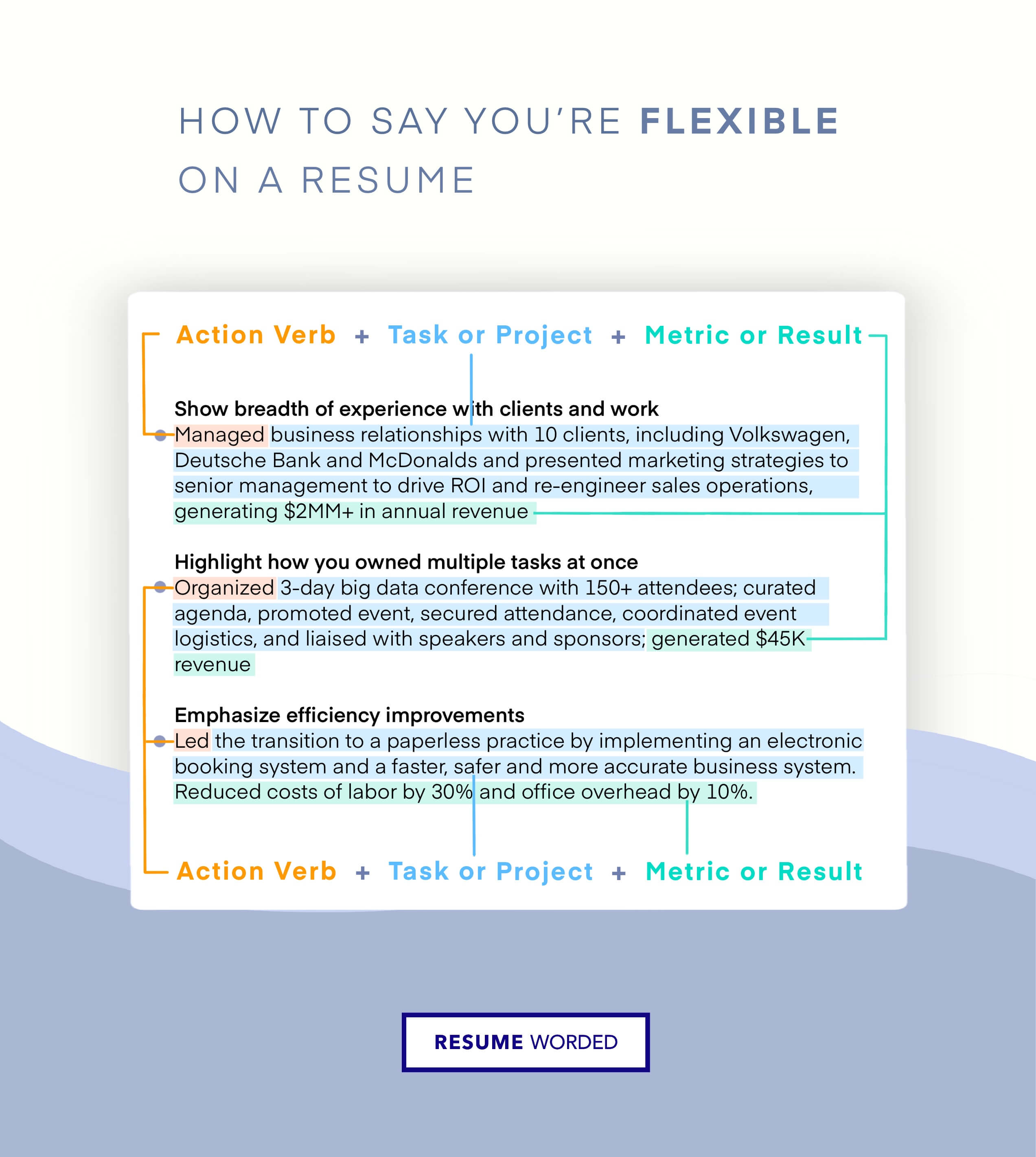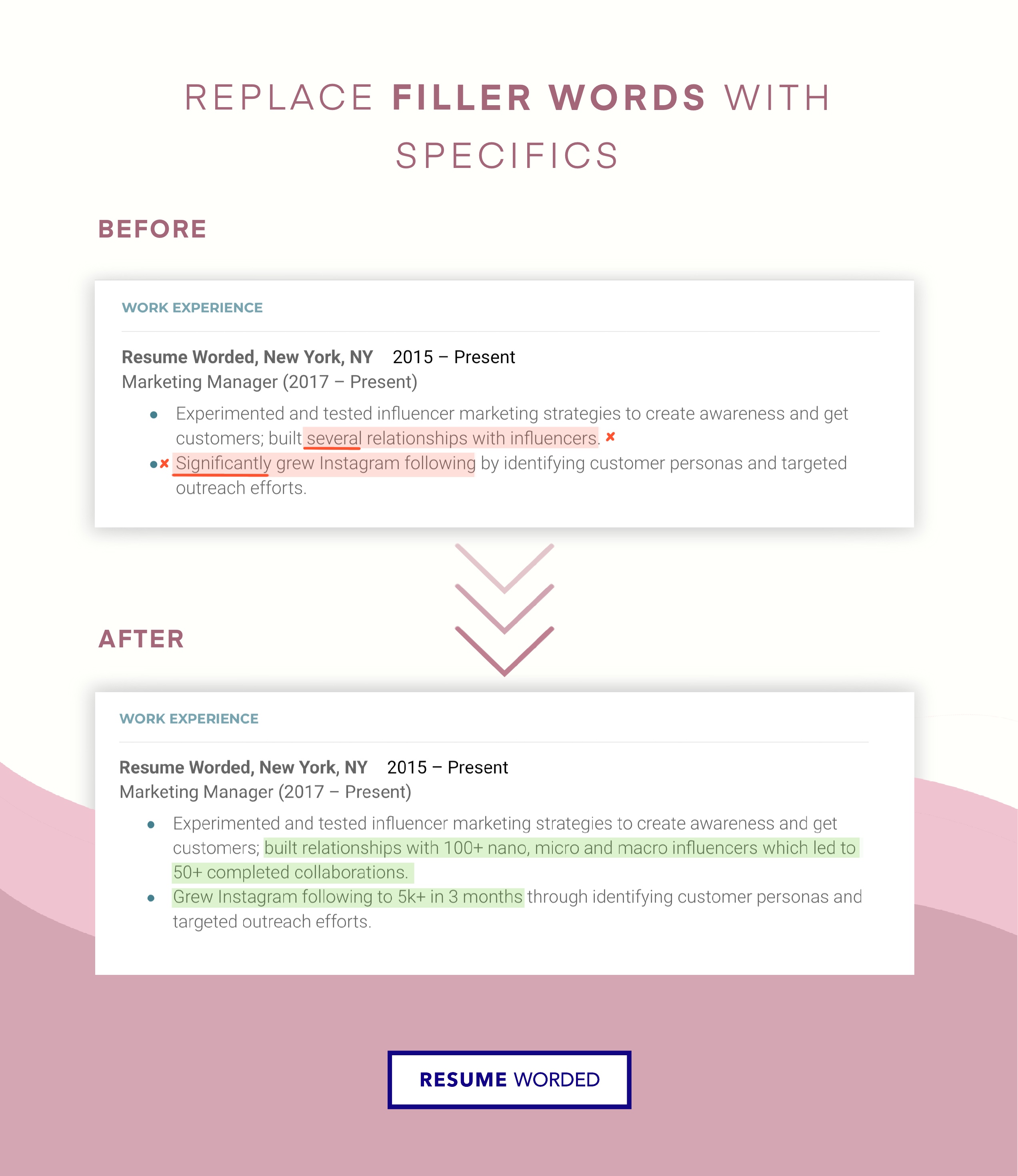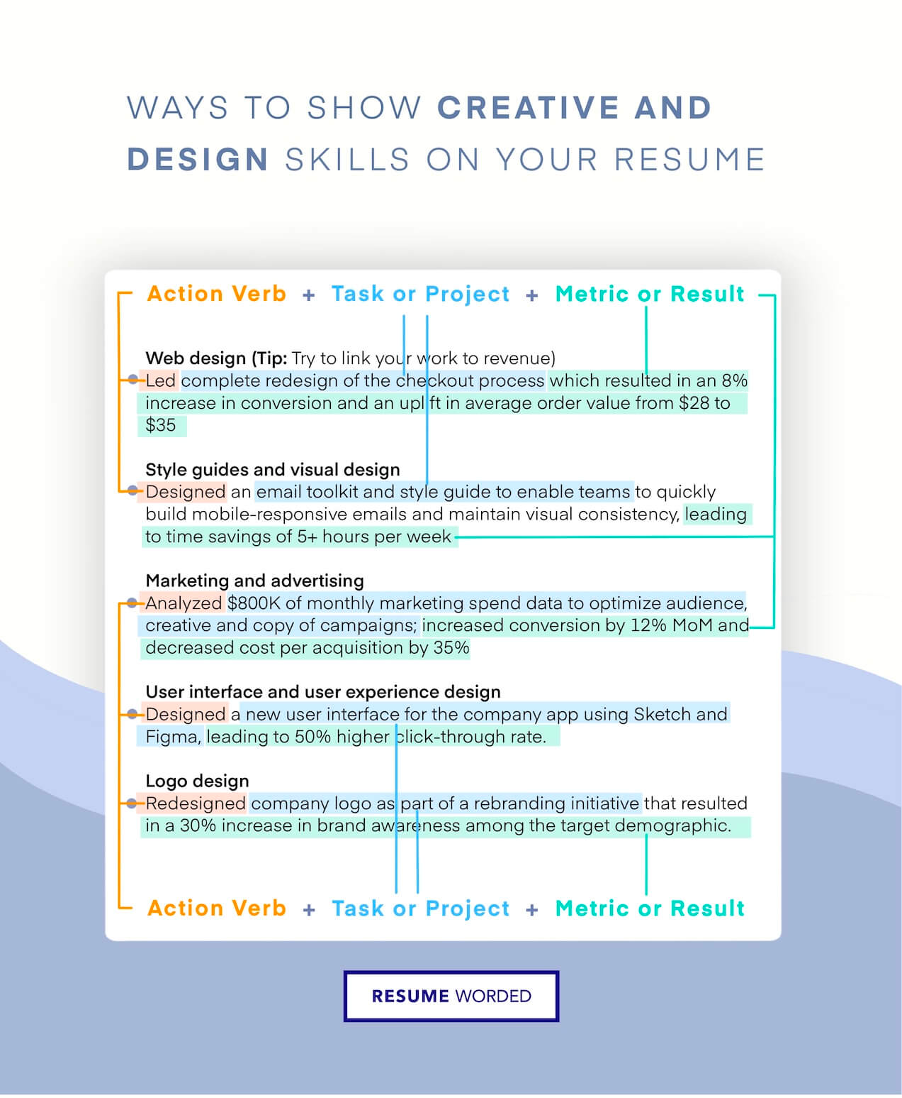If you’ve ever read a job description that said “looking for someone who’s flexible” or “adaptability is a must,” you may be wondering what exactly that means — and how you’re supposed to show it on a resume.
In reality, flexibility is a soft skill that encompasses a huge range of qualities. At its core, it means that you’re willing — and able — to handle changes. Hiring managers are looking for employees who can learn quickly, react to new developments, and deal with uncertainty.
Of course, none of those are things you can list as skills at the end of your resume. This is because they’re soft skills. Recruiters want to see actual examples of why you’re flexible and adaptable, but don’t want to see those phrases listed exactly on a resume. So, how do you show a recruiter that you’re adaptable?
How to demonstrate adaptability on a resume
- First, consider your own strengths. What makes you adaptable? When have you shown flexibility in the workplace? Make a list.
- Next, read through the job description to determine when and how flexibility would be needed in the new job.
- Now, combine the two lists. For each quality mentioned in the job ad, match it with one of your achievements.
- The best way to show you're flexible is to write varied accomplishments (i.e. which shows you dipped your feet in a lot of different things), and through listing different job titles (i.e. through a promotion, which shows you had varied leadership responsibilities too).
- List these accomplishments in your work experience in the format [action verb] + [task or project] + [result].
- Prioritize key accomplishments by listing them at the top of your resume.
- Use a free resume review to score your resume on key criteria like flexibility and adaptability. Just upload your resume below and you'll get an instant resume review.
Let's look at an example of how you might link this all together into a well-formed accomplishment:

What does it mean to be adaptable?
On their own, flexibility and adaptability are just buzzwords. You shouldn't be listing them on your resume. Here’s what hiring managers are really looking for — feel free to use these as inspiration to craft your own bullet points:
- Manage your own time and workload
- Juggle overlapping or conflicting responsibilities
- Suggest solutions to challenges
- Learn new skills on the go
- Willing to take on new tasks
- Deal with changes in roles, timelines, and expectations
- Provide your own structure
- Form good working relationships with your colleagues
- Recognize mistakes and take constructive criticism on board
- Be proactive and ask for clarification when necessary
- Contribute new ideas
- Take risks
- Embrace training opportunities
- Go above and beyond when necessary
- Have a positive outlook
Examples of flexibility for your work experience section
The best way to show adaptability on your resume is through your work experience accomplishments. Here are some sample bullet points to get you started:
- Attended over 50 industry functions, events, and conferences; provided feedback and information on the current market trends.
- Assisted in mentoring a group of approximately 15 business analysts on the organization's evolving approach to requirements management and best practice.
- Tracked and analyzed customer trends and sales totalling up to $2M annually.
- Contributed to client’s revenue growth objectives of $3.5 million to $6 million annually by discovering and launching a new SaaS platform to generate enterprise-class revenue.
- Improved efficiency up to 20% by investigating and managing technical issues such as bug fixes for Growthsi brand post billing system migration.
- Maintained high level product knowledge, received 95% positive reviews for conveying product features and benefits, as reported in customer surveys.
- Defined and interpreted agency services, criteria, and policies to hospital personnel, physicians, patients, families, and other community/facility resources, resulting in an increase in overall performance rate by 27%.
- Met 100% compliance with immigration law practices; attended 5+ seminars to stay up to date on laws.
- Conceptualized and implemented behavioral push notifications based on in-app usage; increased retention by 10%.
- Organized new office and designed systems to maximize office function efficiency by 30%.
- Spearheaded the initiative for corporate diversity, improving the diversity by over 25% across different organizational departments.
- Commended for excellent organizational and client handling skills, awarded thrice as ‘Employee of the Month’ throughout the tenure.
How to say you are flexible on a resume using action verbs
Easily showcase any soft skill, like flexibility and adaptibility, by starting every bullet point with a strong action verb. Here are some of the best action verbs to showcase adaptability:
- Adopted
- Prioritized
- Spearheaded
- Updated
- Revamped
- Troubleshooted
- Evaluated
- Retrained
- Coordinated
- Responded
- Supported
- Recommended
- Managed
- Coached
- Integrated
- Transformed
- Resolved
Skills to include in your "Skills" section
We've explained earlier that while soft skills like adaptability are mentioned on job postings, you shouldn't be including phrases like that on your resume. Instead you should be showing them through your experiences and bullet points.
However, there are a specific kind of skills that you should be including in your resume — particularly in your skills section. They are hard skills — they are specific tools, techniques or industry terminology. Think something like "Photoshop" or "French", the language.
To find skills to include in your skills section, search for your job title using the following tool and you'll get some instant suggestions.
We'd also recommend using the free feature that allows you to paste in your resume and get an overview of what skills are missing from your resume.
Synonyms for flexibility
You should avoid listing words like 'flexible' or saying things like "I'm adaptable" on a resume. They are fluffy buzzwords and are obviously very biased — no hiring managers are going to believe you if you just say you're flexible! They want to see real evidence of this.
Instead, if you want to say you're flexible, you want to be using action verbs like the ones we listed above.
That said, on a cover letter, you can use words like flexible. But there are only so many times a hiring manager can read “flexible” and “adaptable” on your cover letter without getting bored. If it feels like you’re in danger of getting repetitive, try these synonyms instead:
- Resourceful
- Resilient
- Determined
- Open minded
- Collaborative
- Innovative
- Observant
- Independent
- Troubleshoot
- Tech savvy
- Receptive to criticism
- Conflict resolution
- Strategic thinking
- Problem solving
- Organization
- Time management
- Teamwork
- Communication
- Emotional intelligence
- Ongoing learning










